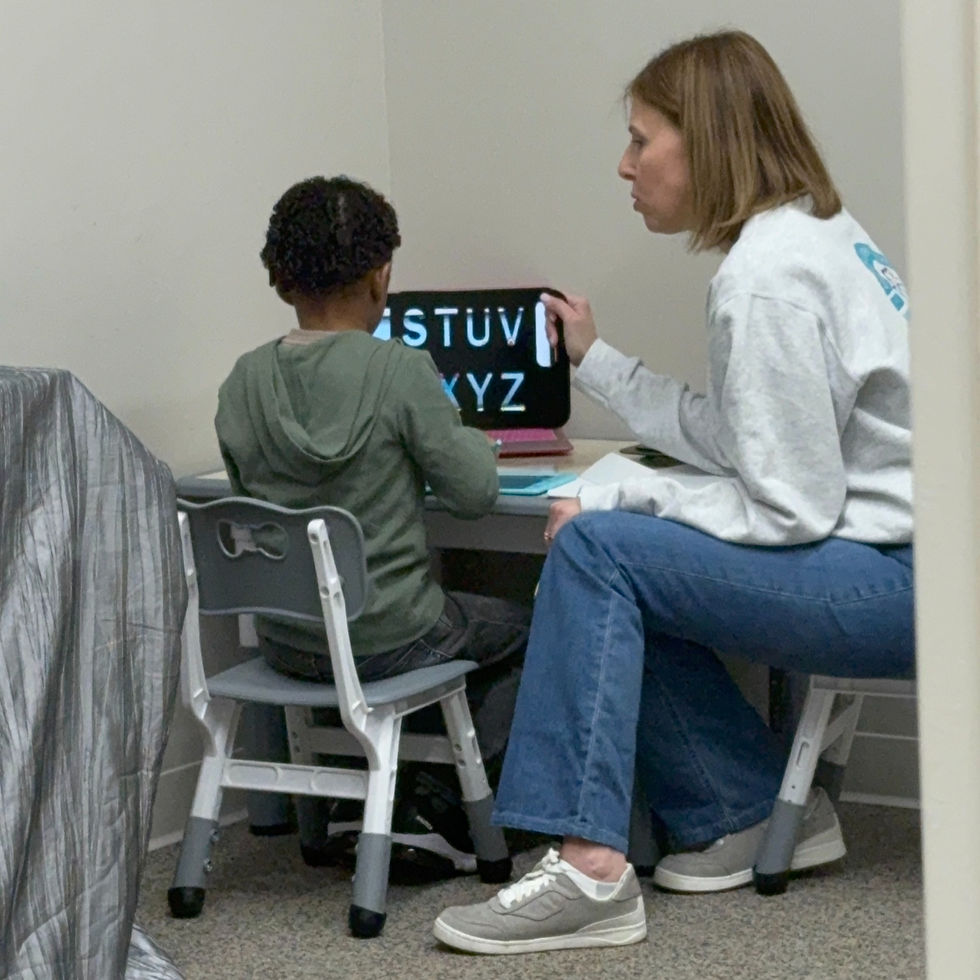Progress Isn't a Straight Line: What I've Learned as a Teacher supporting Autistic Students
- Anne Butler

- Jul 22, 2025
- 3 min read
As a teacher and parent, one of the most important lessons I’ve learned is this: progress is rarely a straight line. This truth reveals itself again and again in our work with autistic students, and it continues to shape how I approach teaching, parenting, and even how I measure success.
The Highs and Lows
There are moments of pure triumph—when a student makes a breakthrough, communicates something new, or engages in a way they haven’t before. For example, when students become more open ended with spelling or go from using split stencils to the single board. Or when a student who struggled with transitions walked calmly into a new classroom for the first time, after weeks of preparation and support. Those moments? They feel like magic.
But of course, there are also days that feel like steps backward. Days when a student struggles to participate during an activity they used to love, or has trouble regulating after weeks of progress. I’ve sat in my car after school on those days, wondering what I could do differently. It’s during those tough times that our commitment is tested. And it’s precisely then that our students need us the most—not to back away, but to lean in with compassion, patience, and belief.

Regression isn't Failure
There’s a natural tendency to panic when progress seems to stall. That fear can lead to frustration—or worse, hopelessness. But here’s the truth: we all have hard days. Neurodivergent or not, everyone experiences ups and downs. Our autistic students are no different.
What they need isn’t perfection or constant forward motion. What they need is consistency (and flexibility), support, and people who will keep showing up, even when things get messy. Especially then.
The Resilience Behind the Silence
I've seen firsthand how incredibly resilient autistic students can be when they feel safe and understood. In these moments students are persevering and by doing this, they are showing trust—and that means everything.
Sometimes, the most meaningful growth happens after the hard days. Progress doesn’t disappear. It just finds different ways to show up.

Celebrate the Small Wins
When things feel uncertain, we have to learn to celebrate the small wins. These moments are monumental, even if they look small from the outside.
During the tough stretches, these victories are what keep us grounded. They remind us why we do this work—because while the journey matters, the people on it are everything!
Growth Takes Time
At REV, we often remind each other: growth takes time.
There is no fixed timeline for development, especially when supporting autistic students whose brains process the world in beautifully unique ways. What matters most is that we keep showing up—with understanding, flexibility, and an unwavering belief in their potential.
We must never stop presuming competence. The hard days do not erase the good ones. In fact, they give those good days more meaning.
To Fellow Educators, Parents, and Caregivers Supporting Autistic Students:
If you’re reading this and feeling tired, discouraged, or uncertain—please don’t lose heart. I see you. I’ve been there. And I want you to know: this journey is worth it.
Keep showing up. Keep believing. Your presence, your patience, and your refusal to give up—it matters more than you know. Our autistic children and adults are growing, learning, and becoming—often in ways we can’t immediately see.
You’re making a difference. And you are not alone.

Anne Butler is a Communication Teacher at REV where she provides one-on-one communication instruction for students in our Gaithersburg and Severna Park locations.























.png)

.png)



.png)



Comments